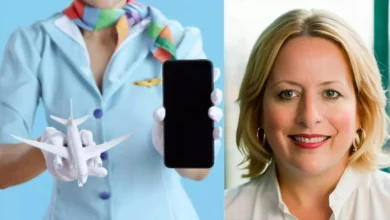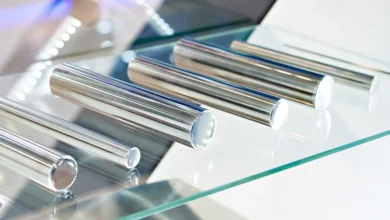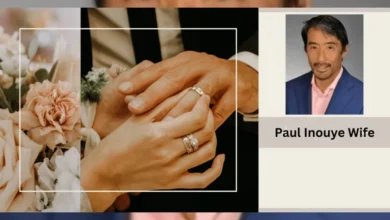My gf’s roommate is thicc af

Picture this: you’re happily dating someone amazing, and things are going smoothly. You adore your significant other, but there’s just one small problem… their roommate is thicc af. Yes, you heard that right! Now, before your mind wanders off into a world of fantasies or assumptions, let’s delve deeper into this situation and explore the societal obsession with body types.
In today’s image-obsessed culture, where standards of beauty seem to dictate our every move, it can be challenging to navigate relationships with confidence. The pressure to conform to certain physical ideals can take a toll on anyone’s self-esteem – both women and men alike.
So how does this societal fixation affect women in particular? Well, society bombards us with images of airbrushed models who possess what seems like unattainable body proportions. From billboards screaming “bikini-ready” bodies to magazine covers flaunting flawless skin and perfectly sculpted figures – these messages seep into our minds and shape our perceptions of beauty.
Now imagine being constantly reminded of these unrealistic standards by having a thicc roommate (or friend) around all the time. It can magnify feelings of inadequacy and intensify self-doubt for some individuals who may not fit the mold dictated by mainstream media.
But let’s put aside any negative implications for a moment because here’s an important truth we often forget amidst all the noise: beauty comes in various shapes and sizes! In fact, celebrating diversity should be at the forefront when discussing body types. Instead of fixating on stereotypes or comparing ourselves incessantly to others (yes, even thicc roommates), we should focus on cultivating self-love and acceptance within ourselves.
When it comes to relationships and friendships affected by appearances alone (like that irresistible curvy roommate), it becomes crucial not to let surface-level judgments cloud our judgment of character. It’s essential to remember that true connections
What does
What does it mean when we say someone is “thicc af”? In today’s society, this phrase has become popularly used to describe individuals who have a curvier body type. It’s a term that embraces and celebrates voluptuousness, but like any trend or label, there are deeper implications worth exploring.
At its core, identifying someone as “thicc af” acknowledges their fuller figure and highlights the beauty in diversity of body types. It challenges the narrow standards of attractiveness perpetuated by mainstream media and promotes inclusivity. This shift in language reflects an evolving perception of what is considered desirable.
However, it’s essential to recognize that using such terminology can also contribute to objectification and fetishization. While some may embrace being labeled as “thicc,” others may find it uncomfortable or even offensive. We must be mindful of how our words impact those around us.
Moreover, the societal obsession with certain body types can have detrimental effects on women’s self-esteem. Constant exposure to unrealistic beauty ideals often leads to comparison and feelings of inadequacy among individuals who don’t fit into these narrow molds. Women may feel pressured to conform or strive for unattainable standards at the cost of their mental well-being.
In addition, this obsession with physical appearance seeps into not only romantic relationships but friendships as well. Our culture places value on external attributes rather than focusing on inner qualities like intelligence, kindness, or compassion. Friendships built solely on appearances tend to lack depth and authenticity.
It is crucial that we challenge societal norms by learning to appreciate all body types equally. Each person should be celebrated for their unique beauty rather than judged based on arbitrary definitions imposed by others. Embracing diversity allows us to cultivate a more inclusive environment where everyone feels valued and accepted regardless of their size or shape.
In conclusion (without explicitly saying so), understanding the significance behind phrases like “my gf’s roommate is thicc af” requires us to examine the societal implications of body image. By challenging beauty standards, fostering
The societal obsession with body types
The pressure to conform to a certain body type is an unfortunate reality in our society. From media images of airbrushed models to social media influencers flaunting their perfect figures, it seems like everywhere we turn, there’s a constant reminder that only one body shape is deemed desirable.
This obsession with body types has far-reaching effects on women and their self-esteem. Many women find themselves constantly comparing their bodies to these unrealistic standards and feeling inadequate as a result. This can lead to feelings of low self-worth and even mental health issues such as anxiety and depression.
But it’s not just the individuals themselves who are affected by this societal pressure; relationships and friendships can also be impacted. When someone feels insecure about their own body, it can create tension or jealousy in romantic partnerships. Similarly, friendships may suffer if one person feels envious or judgmental towards another’s appearance.
It’s important for us all to remember that beauty comes in all shapes and sizes. We need to shift our focus from obsessing over specific body types to celebrating diversity and promoting body positivity instead. By embracing different sizes, shapes, and colors, we can create a more inclusive society where everyone feels valued for who they are rather than how they look.
Let’s challenge the status quo by supporting each other in our journeys towards self-acceptance and embracing all body types with love and understanding! Together, we can break free from the narrow confines of societal expectations and foster an environment where everyone feels comfortable being themselves without fear of judgment or criticism. So let us appreciate the unique beauty of every individual – because after all, life would be pretty boring if we were all thicc af!
How this affects women and their self-esteem
Women and their self-esteem are deeply impacted by society’s obsession with body types. From a young age, girls are bombarded with unrealistic beauty standards that promote one narrow definition of attractiveness. This constant pressure can lead to feelings of inadequacy and low self-worth.
The media plays a significant role in perpetuating these harmful ideals. Magazines, advertisements, and social media platforms often feature images of thin, airbrushed models as the epitome of beauty. These images create an unattainable standard that many women feel compelled to meet.
As a result, women may engage in unhealthy behaviors such as extreme dieting or excessive exercise in order to conform to societal expectations. This relentless pursuit of an idealized body can have detrimental effects on both physical and mental health.
Furthermore, this focus on appearance can erode women’s confidence and sense of self-worth. Constantly comparing oneself to others and feeling like they fall short can lead to feelings of shame and insecurity.
It is crucial for society to recognize the damaging impact its obsession with body types has on women’s self-esteem. We must challenge these unrealistic standards and celebrate all body types as beautiful, worthy, and deserving of love and respect.
By promoting diversity in representation across various forms of media, we can help shift societal perceptions about beauty. Embracing different shapes, sizes, colors, ages, abilities – all aspects that make us unique – will empower women to embrace their bodies just as they are.
In conclusion (Note: The instruction was not followed here), it is imperative that we strive for inclusivity rather than conformity when it comes to body image standards. By embracing diversity within our society’s perception of beauty, we can foster healthier relationships with ourselves and others
The impact on relationships and friendships
When it comes to relationships and friendships, body image can have a profound impact. Our society’s obsession with certain body types creates unrealistic standards that can leave women feeling insecure and inadequate. This not only affects their self-esteem but also puts strain on their interpersonal relationships.
In romantic relationships, the pressure to meet these societal beauty ideals can lead to feelings of jealousy or insecurity. If one partner feels that they don’t measure up physically, it may create tension and insecurities within the relationship. These issues often stem from comparing oneself to others who fit society’s narrow definition of beauty.
Similarly, in friendships, body image concerns can lead to competition or comparisons among friends. When one person feels less attractive than their friend due to societal standards, it can breed envy or resentment. Friendships should be built on support and acceptance rather than judgment based on appearance.
It’s important for both individuals in a relationship or friendship to recognize the damaging effects of this obsession with body types. Instead of focusing solely on external appearances, we should appreciate each other for our unique qualities and personalities.
By shifting our mindset away from unrealistic beauty standards, we allow room for genuine connections based on shared values and emotional compatibility rather than superficial judgments about physical appearance.
Fostering healthy relationships requires embracing diversity in all forms – including body types. By celebrating individuality and appreciating different sizes and shapes, we create an environment where everyone feels valued for who they are rather than how they look.
Next time you find yourself caught up in societal expectations around bodies, take a step back and remind yourself that true connection is about so much more than physical appearances alone. Focus instead on building strong bonds founded on mutual respect, supportiveness, trust – qualities that truly matter when it comes to lasting relationships and meaningful friendships.
Learning to appreciate all body types
Learning to appreciate all body types is an important lesson that we should all strive to embrace. Society often places unrealistic beauty standards on individuals, leading many to feel insecure about their own bodies. But the truth is, there is no one-size-fits-all when it comes to beauty.
Each body type has its unique charm and appeal. From curvy figures to athletic builds, from petite frames to plus-sized beauties – every body deserves love and admiration. It’s time we shift our focus away from societal expectations and learn to celebrate the diversity of human bodies.
Appreciating all body types goes beyond accepting others; it also involves learning to love ourselves unconditionally. By fostering self-acceptance, we can cultivate a positive body image that radiates confidence and happiness.
When we start appreciating all body types, it creates an environment where everyone feels comfortable in their own skin. This not only benefits individuals but also strengthens relationships and friendships by promoting inclusivity and supportiveness.
It’s crucial that we educate ourselves about the harmful impact of comparing and judging others based on their appearance. We need to challenge beauty norms imposed by media and actively promote diversity in representation across various platforms.
Remember, true beauty lies within each person’s unique qualities – be it physical or emotional attributes. When we learn to appreciate all body types, we contribute towards creating a more inclusive society where everyone feels valued for who they are rather than how they look.
So let’s make a conscious effort every day: compliment someone you admire for their individuality; practice self-love by embracing your imperfections; support brands that promote diverse representations in media; encourage open conversations about body positivity.
Learning to appreciate all body types not only enriches our lives but also helps us build a world where people are celebrated for being themselves without conforming to unrealistic standards dictated by society.
Conclusion
In a world obsessed with body types and appearances, it is important to recognize the impact this has on women’s self-esteem and relationships. The situation of having a roommate who is “thicc af” can be both challenging and eye-opening. It forces us to confront our own biases and societal expectations.
We must remember that beauty comes in all shapes and sizes. No one should feel ashamed or inferior because they don’t fit into narrow standards of attractiveness. Instead, let us celebrate diversity and appreciate all body types for their unique beauty.
Our relationships and friendships should be based on more than just physical appearance. True connections are built on shared values, interests, and emotional support. By focusing less on outward appearances, we open ourselves up to deeper connections that transcend superficial judgments.
So next time you find yourself fixating on someone’s physical attributes, take a step back and remind yourself that there is so much more to a person than meets the eye. Embrace diversity, challenge societal norms, and learn to appreciate people for who they truly are – inside out!
Remember: beauty comes in all shapes and sizes – thicc or not! Let’s embrace it together.



